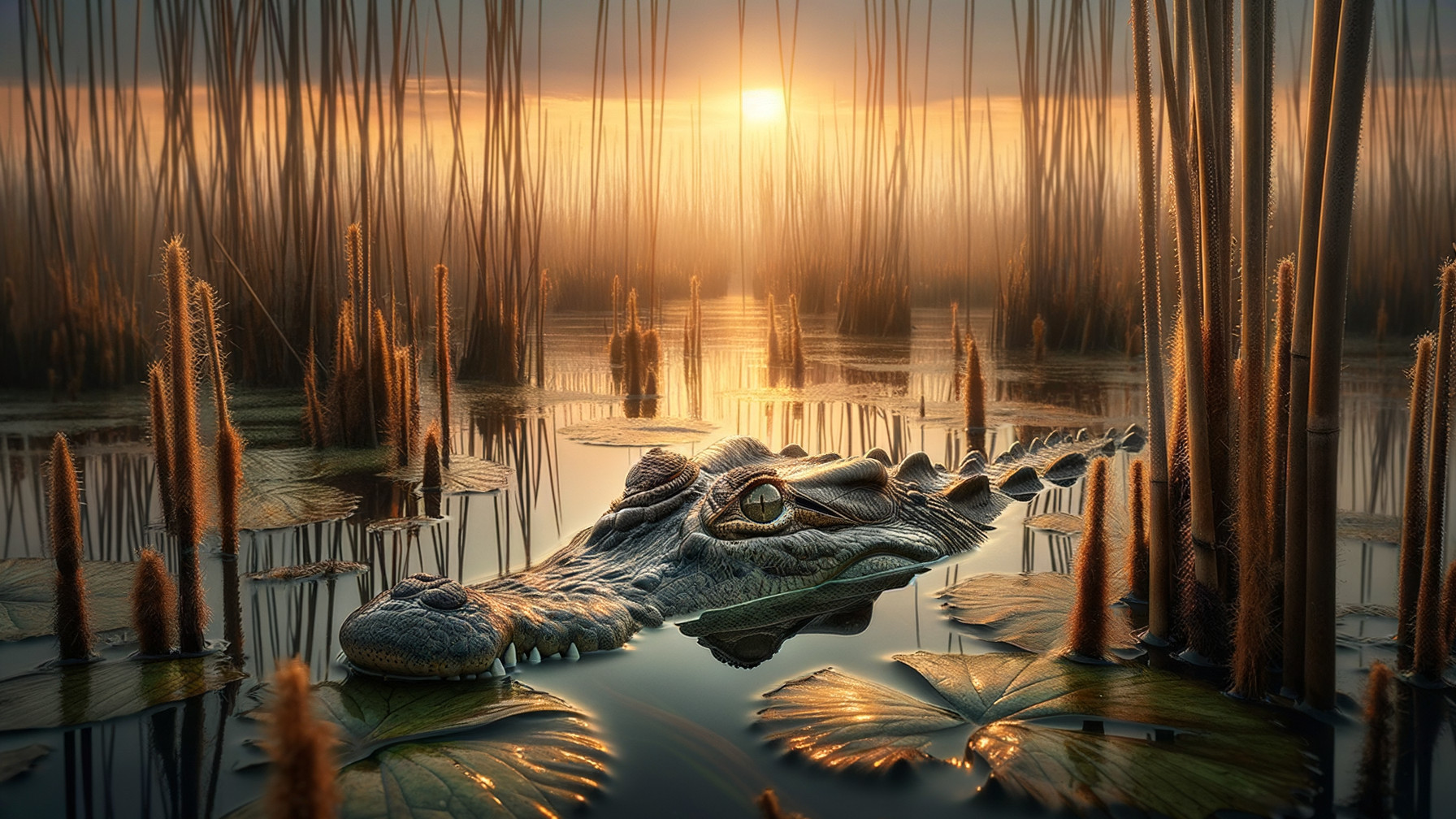Comments
Loading Dream Comments...
You must be logged in to write a comment - Log In

 Artist
Artist
**Philippine Crocodile - Crocodylus mindorensis
Location: Endemic to the Philippines, mainly on Mindanao, Luzon, and a few surrounding islands
Status: Critically Endangered - fewer than 250 mature individuals remain in the wild
Description & Behavior:
The Philippine Crocodile, also known locally as the “Mindoro Crocodile”, is one of the most threatened crocodilian species in the world. Unlike its saltwater cousin (Crocodylus porosus), this species lives exclusively in freshwater habitats - peaceful rivers, ponds, and marshlands surrounded by lush tropical forests.
It is smaller and more golden-brown in color than most crocodiles, growing up to 3 meters (10 feet) in length. Its body is armored with thick, patterned scales, and its eyes hold the golden gleam of ancient wisdom - for crocodiles have changed little in over 200 million years, outliving even the dinosaurs.
Despite its fearsome reputation, the Philippine crocodile plays a vital ecological role. It keeps fish populations balanced and maintains healthy wetlands, which are essential for local biodiversity. Surprisingly, it is not naturally aggressive toward humans unless provoked - yet centuries of misunderstanding have branded it as dangerous, leading to near extinction.
Threats:
Hunting and persecution: Locals once killed crocodiles out of fear or for leather, meat, and teeth.
Habitat destruction: Wetlands are rapidly drained for rice fields, aquaculture, and settlements, leaving the species with few safe places.
Fishing practices: Explosive and electric fishing have destroyed nesting and feeding areas.
Genetic isolation: Small, scattered populations now struggle to find mates and maintain healthy diversity.
By the 1980s, the species was believed to be functionally extinct, until rediscovered survivors in the northern Sierra Madre renewed conservation hopes.
Conservation Efforts:
The Mabuwaya Foundation and local communities in Luzon are now leading community-based nest protection programs, teaching people that crocodiles are part of their natural heritage, not enemies.
Hatchling release projects have successfully reintroduced young crocodiles into protected wetlands.
Strict protection laws now make killing a Philippine crocodile punishable by heavy fines and imprisonment.
Education campaigns have turned former hunters into “crocodile guardians.”
Thanks to these efforts, the population - though still fragile - has slowly increased, especially in the Northern Sierra Madre Natural Park, proving coexistence is possible.
2025 November 03